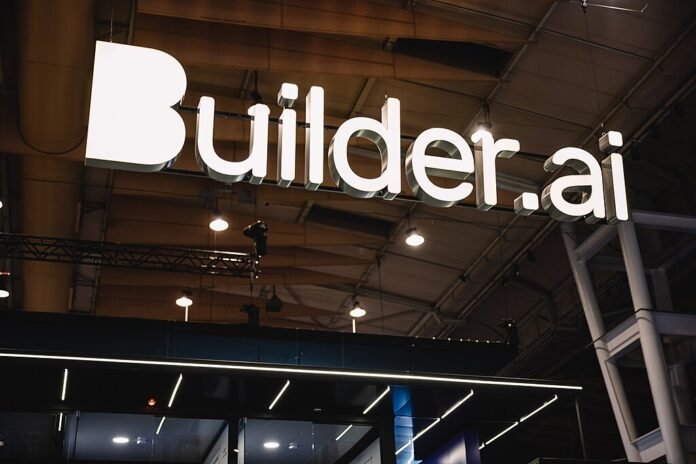Builder AI’s collapse after funding and sales controversies casts doubt on the UK’s AI ambitions and tech sector.
The dramatic collapse of Builder AI, once valued at $1.5 billion and hailed as one of Britain’s most promising AI startups, has left the UK tech scene reeling. The London-based company, which promised to make app-building “as easy as ordering a pizza,” confirmed on 20 May that it would be appointing administrators, putting approximately 1,000 jobs at risk and raising questions about the viability of AI startups in the UK.
Builder AI’s founder, Sachin Dev Duggal, a charismatic entrepreneur who styled himself as the company’s “chief wizard,” stepped down in February amid mounting concerns over the firm’s sales projections and financial health. Duggal, who began building PCs at home aged 14, had attracted substantial investment, including $450 million (£334 million) from high-profile backers such as Microsoft, Qatar’s sovereign wealth fund, and Insight Partners.
The company claimed it used “human-assisted AI” technology, featuring a bot named “Natasha,” to quickly develop apps for clients including the BBC. This innovative vision propelled Builder AI to “unicorn” status, a term reserved for startups valued at over $1 billion. The company’s success appeared to align with the UK government’s ambitions, as Prime Minister Keir Starmer had pledged AI would “deliver a decade of national renewal.”
Embed from Getty ImagesHowever, the reality proved starkly different. Manpreet Ratia, brought in by investors to salvage the business, disclosed to staff that Builder AI was running with “zero dollars,” according to reports by the Financial Times. An internal letter to investors, obtained by The Telegraph, accused the company’s senior lenders of abruptly seizing more than $40 million from its accounts, crippling operational cash flow and forcing a shutdown.
The precipitating factor behind the lenders’ move was a significant shortfall in sales performance. Duggal had forecasted revenues of around $220 million for 2024, yet an independent audit revealed the figure was closer to $50 million—just over a fifth of the target. Builder AI was also compelled to restate its 2023 sales figures after discovering that previously reported revenue from resellers was uncollected and therefore invalid.
The company’s collapse raises tough questions about the hype surrounding AI startups, particularly those promising revolutionary, low-cost tech solutions. While Builder AI’s ambitions were bold, the failure to deliver on financial targets has cast a shadow over the UK’s broader tech ecosystem, where investor enthusiasm for AI has been growing.
The situation also highlights the risks involved in rapid scale-ups that rely heavily on investor funding without sufficient commercial traction. The loss of around 1,000 jobs adds a human cost to the collapse, further denting confidence in the startup sector.
Builder AI’s failure serves as a cautionary tale for investors and policymakers alike, underlining the importance of thorough due diligence and realistic growth expectations, especially in a field as complex and evolving as artificial intelligence.
As the UK government continues to push AI as a key economic priority, the collapse of a high-profile company like Builder AI may force a re-examination of how best to nurture and regulate this emerging industry while protecting jobs and public investment.
